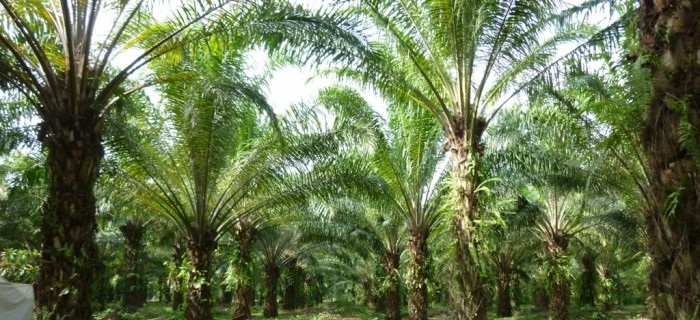Organizations Question $15 million World Bank Loan to Davivienda in Honduras
FOR IMMEDIATE RELEASE
Honduran and international civil society organizations express their concern about a project proposal which will be coming before the Board on Wednesday 30th April.
The International Finance Corporation (IFC) of the World Bank is proposing a loan of up to $15 million to the commercial bank, Davivienda, in Honduras. The project documents identify the development benefits related to SME credit and possible environmental and social risks arising from the loan.
“Potential E&S risks associated revolve around OHS, biodiversity impacts, and pollution. In some instances child labor, land disputes, and impacts on indigenous and other vulnerable communities may be also possible.”
The organizations highlight a number of concerns:
- While it is commendable that the project documents do recognise and highlight such risks – especially as the Compliance Adviser/Ombudsman (CAO) found that lack of risk identification was a major failing in the Dinant case – it is deeply concerning that despite such a recognition, the project has been categorised as medium risk, or FI2. Given the highly sensitive context in the wake of IFC’s Dinant investment, the risk of human rights violations and the history of land conflicts in Honduras, it is disturbing that this project is not classified as high risk despite the IFC admitting it could provoke land disputes and affect vulnerable communities. The IFC’s new head of E&S Morgan Landy has committed personally to review high risk cases – but if projects are mis-categorised (which again was a fundamental flaw in the Dinant case) then high risk projects may not come to his attention.
- The IFC lessons learned document presented to the Board on 4th April clearly sets out the need to look in greater detail at the context of the IFC’s investments and not only the specific purpose of the IFC’s funds. While the Banco Davivienda investment summary was produced before 4 April, this should not stop the Board from requiring a higher standard of risk assessment. Given that a similar IFC loan to Banco Ficohsa is under audit by the CAO, and only this month the IFC released a revised Dinant action plan, it would seem to undermine the IFC’s recent commitments to learn lessons and put right its mistakes in the Dinant case to go ahead with investments that have not looked at the contextual risks of an investment in Honduras.
- There is a strong likelihood that Banco Davivienda, as a major commercial bank in Honduras, has financial ties to Corporacion Dinant and other companies involved in conflicts related to land acquisitions. If this is the case, then it would seem important for the IFC to highlight this in its project documents so that the Board can make an informed decision. Investing in a bank with connections to Dinant or other companies linked to land conflicts would seriously damage any trust the IFC was trying to build with stakeholders. Furthermore, even if the IFC’s proposed loan is not intended to back any possible relationship between Banco Davivienda and Dinant, there are questions of both perception and fungibility. Publicly backing an entity with any ties to Dinant would at this point seriously endanger the IFC’s reputation. Providing capital to Davivienda, even if restricted to SME finance, risks freeing up other capital on its balance sheet, which could be used to support financial connections with Dinant.
These concerns raise serious questions about the IFC’s categorisation of risk and about the risks inherent in financial intermediary lending, which the CAO audit on financial markets highlighted. This loan proposal provides a test case for the IFC to demonstrate that it is learning lessons from the Dinant experience. The organizations also urge the IFC to consult with local stakeholders to get their thoughts on this proposed investment.
Stay in the loop with Food First!
Get our independent analysis, research, and other publications you care about to your inbox for free!
Sign up today!On behalf of: MUCA, Madre Tierra, Plataforma Agraria, Oxfam, Bank Information Center, Rights Action, Bretton Woods Project, Global Witness, Carbon Market Watch, BankTrack, Social Justice Connection Canada, ActionAid International, Accountability Counsel, Habitat International Coalition – Latin America Office (HIC-AL), Ulu Foundation, Urgewald, Both ENDS, Institute for Policy Studies – Climate Policy Program, KOSID, Justice Team: Sisters of Mercy of the Americas, 11.11.11 – Coalition of the Flemish North- South Movement – Belgium, Centre national de cooperation au développement Belgium (CNCD- 11.11111) GMB , Debt and Development Coalition Ireland, Jubilee Debt Campaign, Re:Common, Eurodad, Trocaire, and Food First/Institute for Food and Development Policy.
Contact:
Oxfam: Kate Geary +44 7795 475859 kgeary@oxfam.org.uk
Movement of Unified Campesinos in Aguán: Yoni Rivas Baire
yrivas34@yahoo.com o movimientomuca@gmail.com + 504 9846-3116
(Spanish only)


 Help Food First to continue growing an informed, transformative, and flourishing food movement.
Help Food First to continue growing an informed, transformative, and flourishing food movement.




